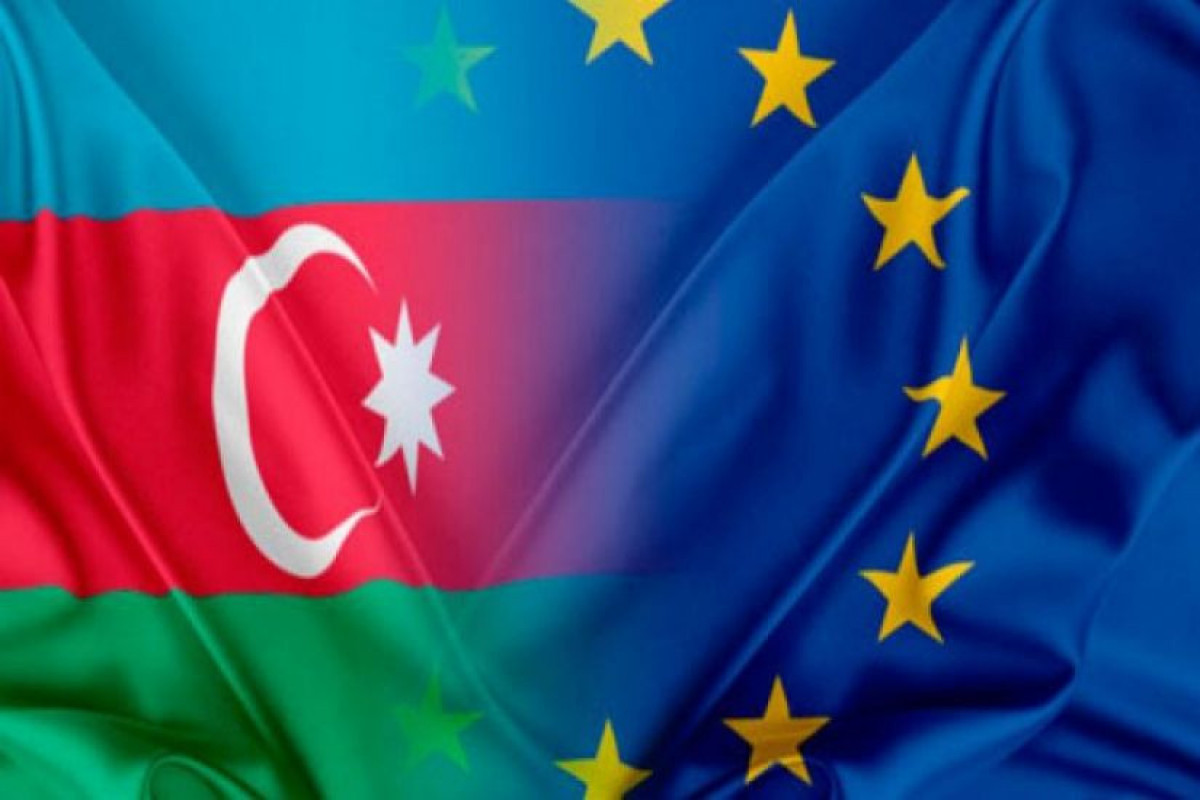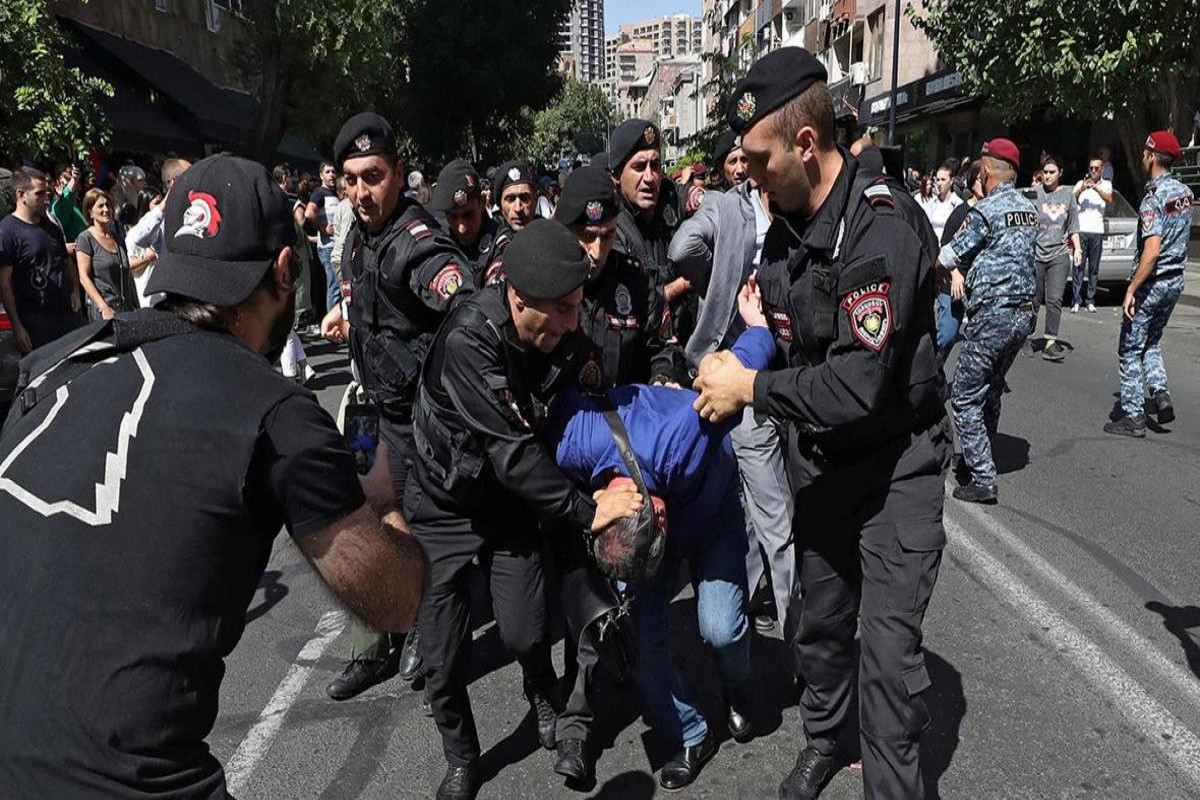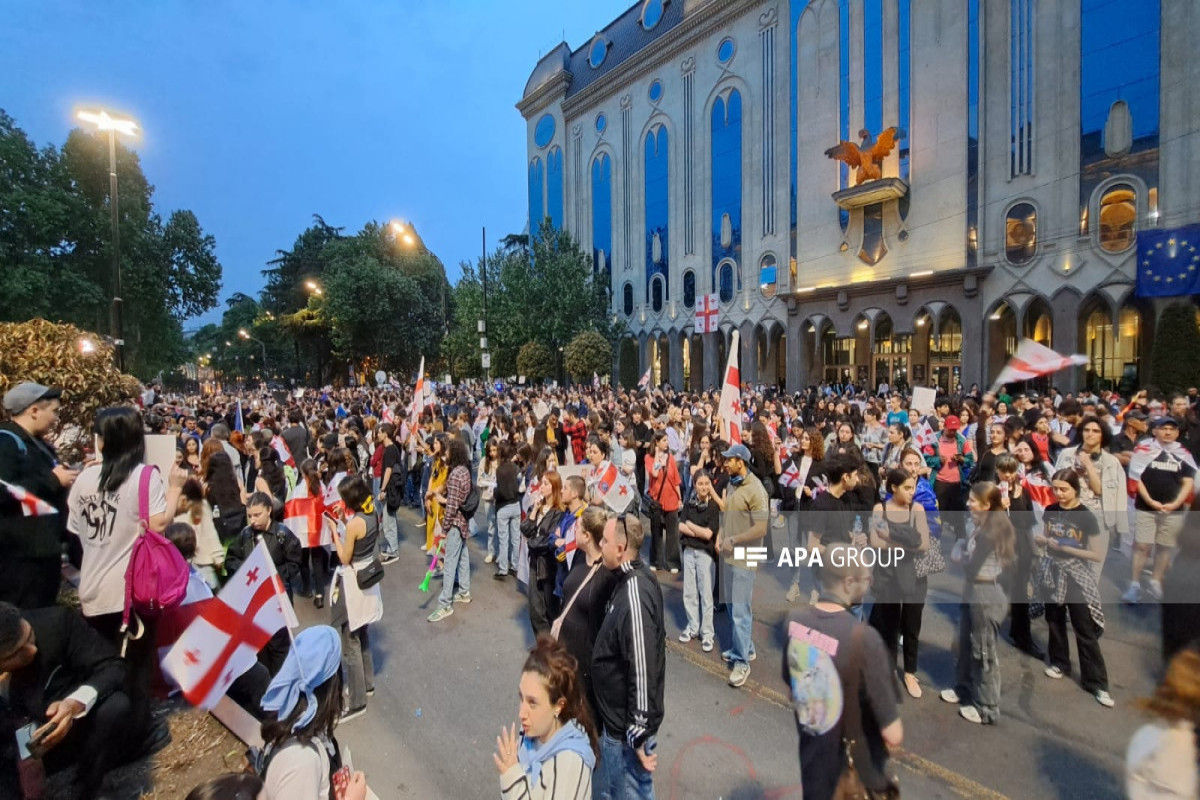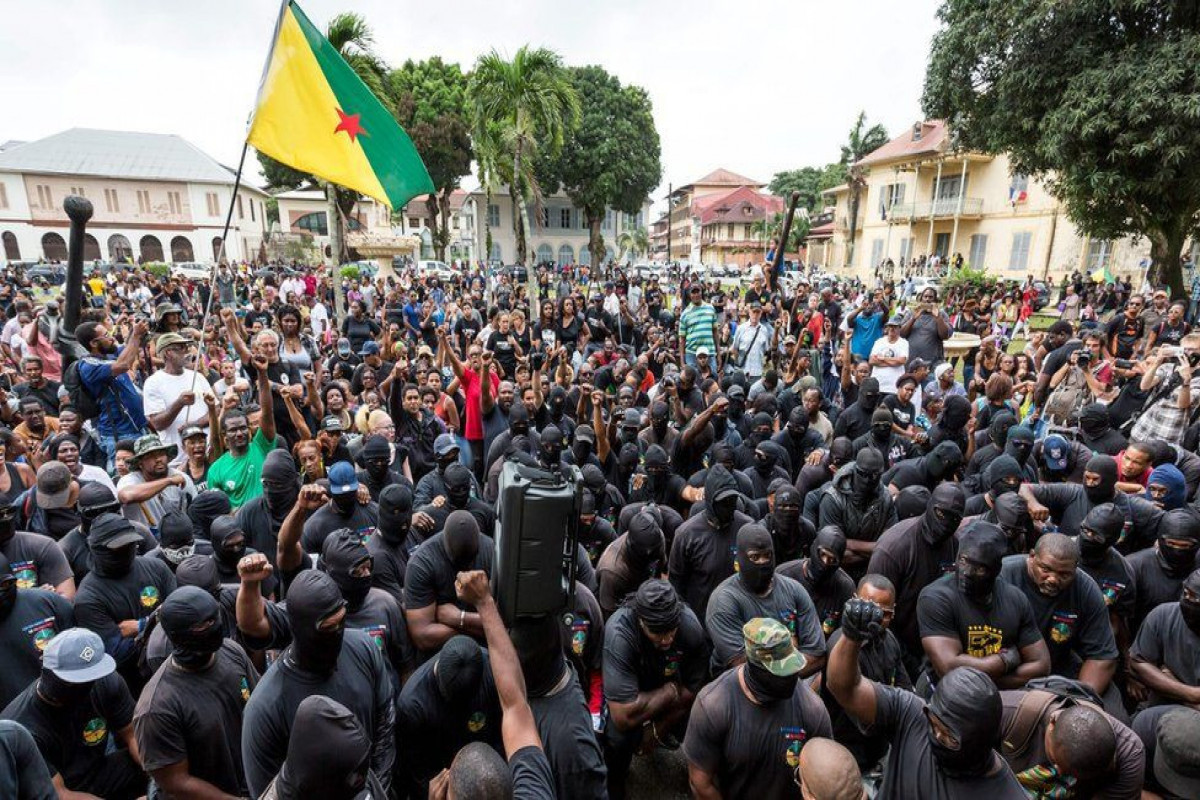The European Union is an economic and political union consisting of 27 member states. Looking at the list of those countries, it is impossible to find any country with a Muslim majority among the EU members. However, in the "old continent," there are countries where the majority of the population is Muslim, such as Türkiye, Albania, Bosnia and Herzegovina. Those countries have been made to wait at the door of the European Union for many years.
Although Brussels requires the candidate countries to implement the Copenhagen criteria, there is no doubt that the issue is not only in the implementation of the practical part of the requirements but also in the aspects related to mental and ideological values.
In other words, to become a member of the European Union, it is required not only to adopt the legislation, political, economic, and legal system, but also to share the same history, culture, and religious values as the EU.
Türkiye, which has been waiting at the door for years
The most obvious victim of this unofficial demand is the Republic of Türkiye. In general, Türkiyehas the longest and most fruitless relationship with the European Union regarding membership.
Türkiye, which applied for EU membership back in 1987, was approved for EU membership in 1999, and since 2005, official negotiations on EU membership have been underway between Ankara and Brussels.
But in the last 18 years, no serious progress has been made regarding Türkiye's membership in the EU, rather, as soon as the ground for progress is created, the European Union makes new demands. Under the allegations of continuous violation of basic human rights and the rule of law, the EU makes serious political demands to Türkiye, wanting it to recognize the "Armenian genocide" and withdraw its troops from the Turkish Republic of Northern Cyprus.
Relations between the European Union and Türkiye have cooled especially after the coup attempt in Türkiye was thwarted in 2016.
In June 2018, the European Union issued a statement saying that Ankara is increasingly moving away from the EU and that the negotiations between the parties have reached an impasse.
At the moment, not only Türkiye's membership in the EU but also the simplification of the visa regime and the renewal of the Customs Agreement are hardly discussed.
Turkish President Recep Tayyip Erdogan has repeatedly sharply criticized the biased position of the European Union. The last time, just yesterday (December 19), he declared that it was wrong for Türkiye to wait at the door for years due to political obstacles.
"The European Union should stop this mistake. The European Union should carefully assess Türkiye's position from now on. "Türkiye, which is more ready to join the European Union than many member countries, has been waiting at the door because of political obstacles for years," Erdogan said.
European politicians often put forward the fact that Türkiye's European part is 3% of its territory, and its main part is located in Asia, as an argument that prevents its membership. But they forget or ignore the fact that Cyprus, which joined the EU in 2004, is geographically not in the European continent, but in Asia. This is a clear example of a biased approach and double standards.
The main reason for the European Union to obstruct Türkiye is the fact that it is a Muslim country of 85 million people. The EU, which is experiencing a demographic crisis, with a declining birth rate and a rapidly aging population, is seriously wary of Türkiye's membership in the Union as a "Christian club" and is afraid of a sharp change in the ethnic and religious composition of the "old continent".
The EU sees the post-Soviet countries as a buffer zone
But if the main obstacle in the case of Türkiye is the religious factor, the case of former post-Soviet countries Georgia, Moldova, and Ukraine is different.
It is true that the European Union approved the candidate status of Georgia at its meeting held on December 14, and gave a "green light" to the process of membership talks with Moldova and Ukraine, but it should be taken into account that Brussels, which kept Türkiye at the door with vague promises, is expected to apply the same trick to the former post-Soviet republics. .
Although the membership of those countries in the European Union seems more realistic due to Christian solidarity, there are many nuances here as well.
The first and main fact is related to the actual violation of the territorial integrity of all 3 countries.
That is, although de jure the territorial integrity of all 3 countries is recognized, de facto Georgia does not control the regions of South Ossetia and Abkhazia, Moldova does not control the Transnistria region, and Ukraine does not control the important part of Crimea and the southeastern regions.
Considering that Ukraine, which has started membership negotiations, is currently waging a war, it is questionable with which territory it will join the Union.
But Peter Stano, the press secretary of the High Representative of the European Union for Foreign Policy and Security Affairs, Joseph Borrell, did not rule out that Moldova and Georgia could be admitted to the Union with their current territories, that is, without South Ossetia, Abkhazia, and Transnistria. It seems that official Brussels is trying to come to terms with the loss of territories from candidate countries, to forget the conflict frozen by the promise of membership.
To become a member of the Union, numerous commission meetings must be held, reports must be heard, and up to 70 votes are required for the legal acts of the countries to reach the level corresponding to the criteria for membership in the European Union, and for the full completion of the membership process in the European Union.
This process takes decades, not years, and there is no guarantee of EU membership at the end of the road.
Brussels wants to create a security belt, a buffer zone around its borders with the illusion of membership. It needs both Türkiyeand the post-Soviet republics for this purpose.
He is trying to get the political and economic dividend he wants from those countries by blackmailing that he will put a "stop" to the membership at the moment he needs it.
For example, the European Union engaged in active negotiations with Türkiye to resolve the migrant crisis, which was the catalyst of the "Arab Spring", official Ankara responded to Europe's request by agreeing to keep 3 million illegal migrants on its territory.
That is, when it suits its interests, the EU goes into active negotiations with the candidate countries.
The European Union needs Ukraine, Georgia, and Moldova more as a buffer zone against Russia. These countries seem to be its security belt, on the other hand, by maintaining the illusion of membership, it gains additional leverage over those countries.
This can be seen from the issue of Georgia's adoption of the law "On Foreign Influence Agents". The European Union urged the Georgian authorities not to adopt the law. To withdraw from the adoption of this law, in June 2022, the European Commission gave a positive recommendation regarding Ukraine and Moldova's candidacy for membership but gave a negative opinion to Georgia, which applied for membership at the same time as them.
After the law was withdrawn from the parliament by the ruling "Georgian Dream", Georgia received the candidacy status with a delay of 1.5 years.
Apparently, the European Union will have the chance to actively use "punishment" methods against Ukraine, Moldova, and Georgia for actions that do not suit their interests, under the pretext of moving away from democracy and the rule of law.
A secret sectarian war: Catholics versus Orthodox
As mentioned above, the religious factor played a key role in Türkiye's membership of the Union. Even though they are Christian countries with Moldova, Ukraine, and Georgia, the sectarian difference is evident here.
All 3 countries belong to the Orthodox denomination of Christianity, and this factor is one of the issues that the European Union, which is mainly governed by Catholic countries, gives importance to. Traditionally, after the "Great Schism" in 1054, there were serious disagreements between Catholics and Orthodox, and this has affected not only the performance of religious rites and customs but also the outlook and mental values.
This religious antipathy shows itself in Poland and Serbia. Catholic Poland gained official membership status 6 years and 1 month after the start of membership negotiations with the EU. This country was even given the privilege of keeping its national currency - the zloty - in circulation.
Brussels allocates the most subsidies to Poland. So, according to the 2021-2027 plan alone, Poland will receive 160 billion euros from the European Union, including 125 billion euros in non-reciprocal aid.
Unlike Catholic Poland, which is given special treatment, Orthodox Serbia is subject to double standards. This country has been a candidate for the European Union since 2012, and during these years it has reached the level corresponding to the criteria of Brussels, either with democratic institutions and the rule of law, or with legislative reforms. Nevertheless, negotiations with Serbia do not go smoothly and are often deadlocked.
Brussels is influencing Belgrade over the unresolved issue of Kosovo, as if it is trying to make serious concessions on this issue, to recognize Kosovo as an independent country under the promise of membership.
It is no coincidence that President Aleksandar Vučić was confident that Serbia's membership would not happen until 2027.
Religious factors, political factors, and economic interests allow the European Union to act selectively towards candidates and even member countries. At the same time, noted facts show that the EU has no interest in enlargement, but they try to show that it is just an illusion.
Azerbaijan finds an ideal formula in the relationship with the EU.
Amid enumerated facts, it is obvious that Azerbaijan find an appropriate cooperation format with the EU and Azerbaijan’s choice is right. Azerbaijan is interested in the development of relations with the EU which is based on equal partnership. Official Baku cooperates in the framework of Eastern Partnership with the EU in bilateral and multilateral ways since 2009.
Currently, Azerbaijan continues the discussions on visa simplification with the EU which is the biggest trade partner of Azerbaijan.
Official Baku is not eager to be a member country of the EU considering current conditions and prefers to equal partnership. However, after the restoration of territorial integrity, Azerbaijan can be a more attractive and problem-free candidate than Ukraine, Moldova, and Georgia.
The relations of Official Baku and Brussels are characterized by President Ilham Aliyev’s speech at the Forum titled "Garabagh: Back Home After 30 Years. Accomplishments and Challenges" co-organized by ADA University on December 06: “Azerbaijan does not set a goal on being a member of the EU in the conception of foreign policy. This is a very pragmatic approach because they will never grant us as a member country. The reason is obvious. We are living in the real; world, not the virtual one. I mean, if they will not grant us as a member country, why should we knock on that door and why should we bother the host? At the same time, why should we embarrass ourselves”.
By saying “We have found a way to cooperate, and build relations”, President Ilham Aliyev declared to everyone that Official Baku does not live with illusions, and makes rational and pragmatic decisions.



 ANALYSIS'>
ANALYSIS'>

 ANALYTICS'>
ANALYTICS'>
